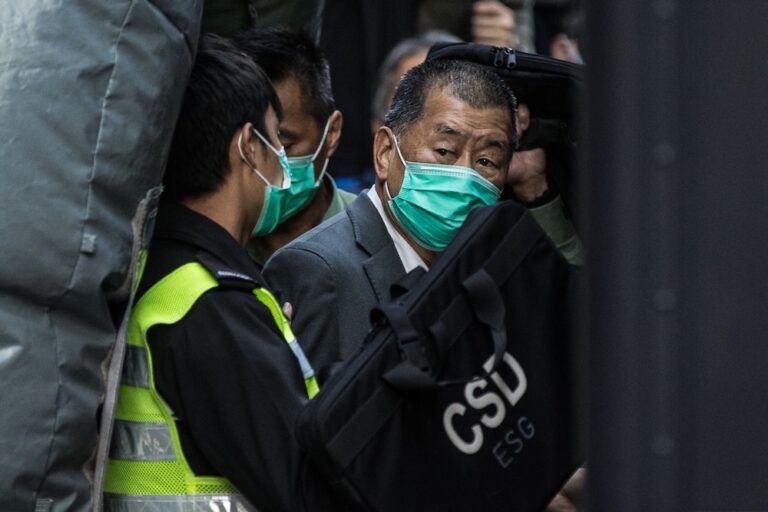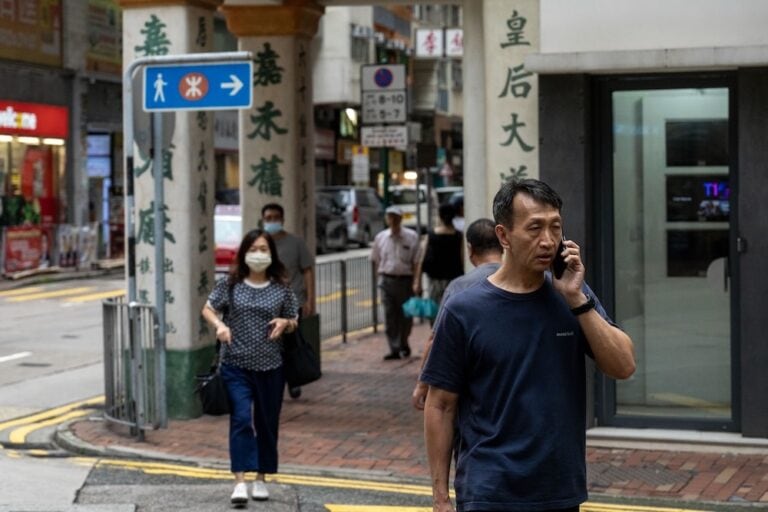IFJ is concerned by reports that the Chinese Liaison Office in Hong Kong has interfered with reporting by the local media on the election of a new chief executive of Hong Kong.
(IFJ/IFEX) – March 22, 2012 – The International Federation of Journalists (IFJ) is deeply concerned by reports that the Chinese Liaison Office in Hong Kong, the primary agent for the Mainland Central Government in the territory, has interfered with reporting on the election of the new Chief Executive of Hong Kong by the local media.
A senior staff member for a Hong Kong newspaper, who wished to remain anonymous, informed IFJ that they had received numerous telephone calls from the Chinese Liaison Office during the last two weeks. In these calls, it is claimed representatives from the Liaison Office castigated the newspaper for reporting previous allegations that the Office had attempted to influence the members of the election committee in their selection of Hong Kong’s next Chief Executive.
The Office representative also reproached the newspaper for its in-depth investigative report on one of the candidates, Chun-Ying Leung, who is widely favoured for selection as the next Chief Executive of Hong Kong.
Another publisher, who is one of the members of the election committee, told IFJ that they also received calls from the Chinese Liaison Office.
“They didn’t mention the name of which candidates they support, but they clearly expressed their viewpoint,” he said. “Initially they stressed the importance of ‘experience’ and ‘temperament’, however they later changed and said ‘popularity’ is the key when we cast our votes.”
“I believe they called members of the election committee with the aim of influencing our decisions,” he added.
According to several local media reports, one of the candidates for Chief Executive, Mr Albert Ho, said he had also received a complaint from a local newspaper that it had been placed under pressure by telephone calls from the Chinese Liaison Office.
On March 25, 2012, Hong Kong’s Election Committee will elect one of three candidates as the next Chief Executive of Hong Kong. So far, the campaign has been full of personal attacks. At the same time, the impartiality of the Hong Kong media has been questioned. According to a survey conducted by the Chinese University of Hong Kong, more than 30% of the public do not trust the media’s reporting on the elections. The survey, conducted from March 12 to 20, found that only 10% of the 2,733 interviewees felt Hong Kong’s media practised balanced reporting.
Mak Yin-ting, Chairperson of the Hong Kong Journalists Association, an IFJ affiliate, expressed her disappointment at the quality of media reporting on the elections in an interview with MingPao Newspaper, claiming that many media outlets have exercised bias in their coverage.
“The media has a duty to reflect the truth to the public and stay impartial without any prejudice,” IFJ’s Asia-Pacific office said. “Any attempt by governments to interfere in the independence of the media, and unduly influence their reporting, is unacceptable.”
The IFJ urges Donald Tsang, Chief Executive of Hong Kong, and Raymond Tam, Secretary of the Constitution and Mainland Affairs Bureau, to investigate the allegations of political interference into Hong Kong’s media and ensure that press freedom is protected in Hong Kong.


